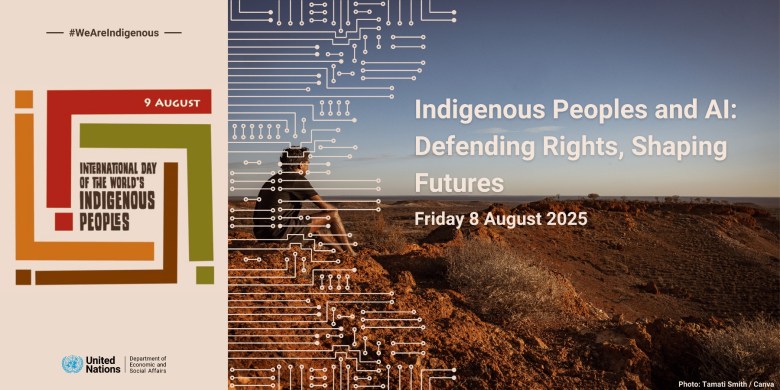Kalle Benallie
ICT
Every year the United Nations celebrates International Day of the World’s Indigenous Peoples Day on Saturday, Aug. 9.
The International Day of the World’s Indigenous Peoples was officially commemorated annually on Aug. 9 in recognition of the first meeting of the United Nations Working Group on Indigenous Populations in Geneva in 1982.
The United Nations focuses on a theme for the day each year and this year’s theme is artificial intelligence and Indigenous peoples.
The UN explained how artificial intelligence’s fast evolution should be monitored. It’s especially important because AI systems can have biased data about Indigenous culture that doesn’t have Indigenous voices and knowledge. On Aug. 8, the Department of Economic and Social Affairs will host a virtual commemoration of “Indigenous Peoples and AI: Defending Rights, Shaping Futures.”
Aluki Kotierk, the chair of the Permanent Forum on Indigenous Issues, will open the virtual event with a statement with a moderated panel by Elaine Reyes with five speakers after. English and Spanish interpretations will be available. The event begins at 9:00 a.m. Eastern Time. There will be a live transmission on Zoom and the UNPFII Facebook. Attendees on Zoom must register.
 (Tamati Smith / Canva / UN)
(Tamati Smith / Canva / UN)
Topics like the lack of access Indigenous people have to technology will be discussed. At the United Nations’ World Summit of the Information Society, Indigenous people were mentioned in the report about bridging the so-called digital divide and ensuring everyone’s inclusion and participation in the information society.
Environmental concerns are another reason why artificial intelligence is a focus for International Day of the World’s Indigenous Peoples Day. The construction and maintenance of data centers for AI could put a strain on Indigenous resources and nearby Indigenous land and territories. Water is a significant resource to power the electricity data centers use. As well as the potential exposure of electronic waste, that includes mercury and lead, produced by data centers could be disposed of near or on their land.
The United Nations cited the Atacameño people in northern Chile are resisting AI-powered mining operations that extract lithium and copper, which are key materials for AI hardware and electric vehicles.
“These operations use AI to optimize extraction and logistics, threaten sacred lands and water sources in the Atacama Desert and are being challenged for violating Indigenous rights and environmental protections,” the UN said.
But the UN acknowledges the potential opportunities of AI like empowering cultural identity. All across the world Indigenous communities are using AI to help preserve and revitalize Indigenous culture.
In Polynesia, Indigenous-led reef conservation projects are blending traditional ecological knowledge with AI to monitor coral health and restore marine ecosystems. In Inuit territories, AI models are being co-developed with Indigenous wisdom to help communities adapt to climate change like shifting ice patterns and food security. In New Zealand, Te Hiku Media is using AI to help revitalize and promote the Māori language.
“When developed inclusively and ethically, AI can support language revitalization and cultural preservation. For example, AI-driven tools can help document endangered Indigenous languages, contributing to their revitalization and preservation for future generations,” the UN wrote.
The UN Permanent Forum on Indigenous Issues mentioned the topic earlier this year in the Permanent Forum on Indigenous Issues report. It was recommended that entities in the UN that are involved in developing, governing and applying artificial intelligence and digital technologies ensure Indigenous peoples are included.
“Respecting Indigenous peoples’ rights, data sovereignty, and promoting Indigenous-led innovation are key to realizing the positive potential of AI and avoiding perpetuating harm,” the UN wrote.
Online participation of the event can use hashtags: #WeAreIndigenous #IndigenousPeoplesDay #SomosIndígenas #DíaPueblosIndígenas #NousSommesAutochtones #JournéePeuplesAutochtones

Related

